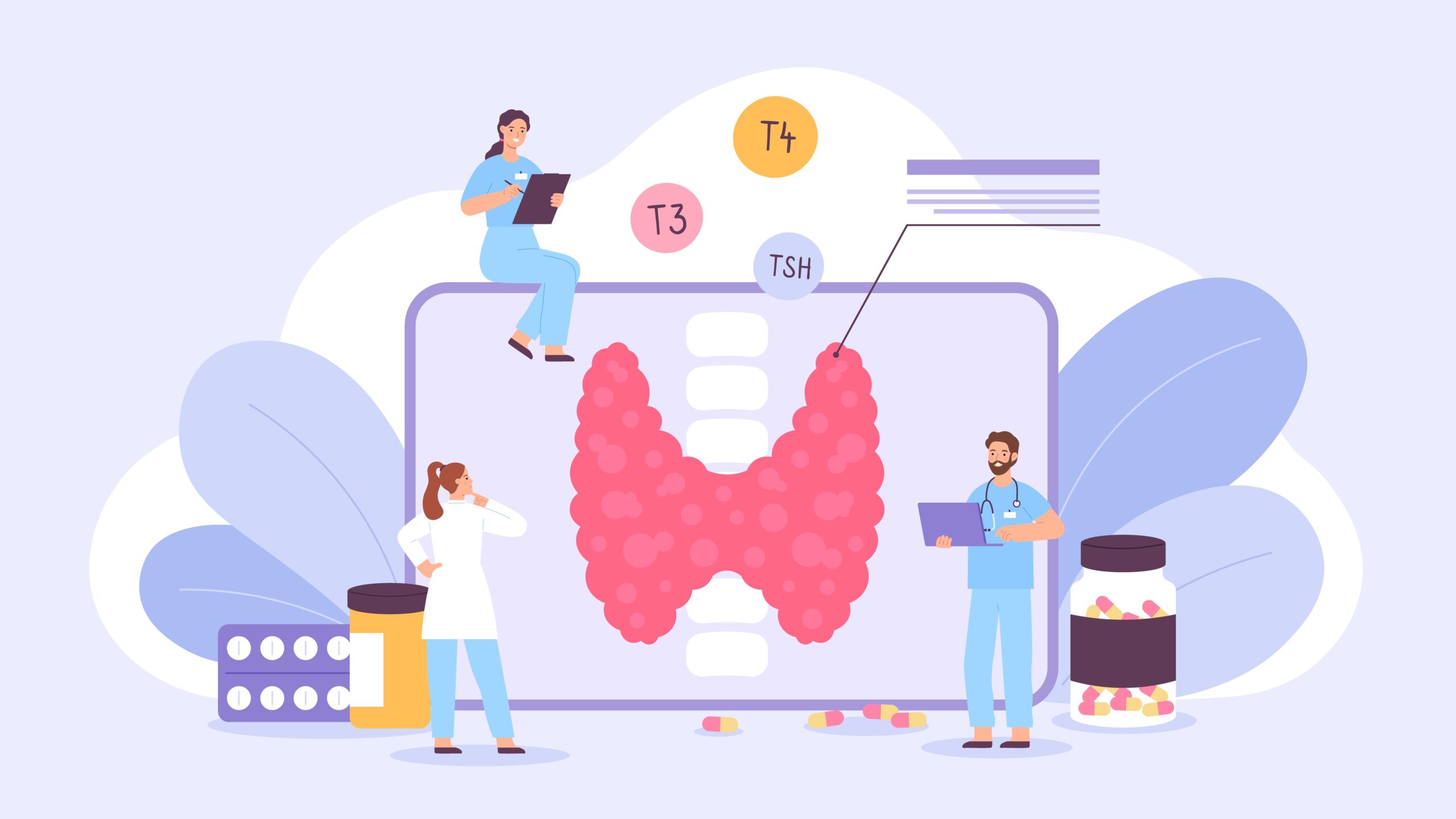
Thyroid health is a complex but critical part of overall wellness. In a recent Wellness For Life episode, Niki Wolfe and Dr. Dana Gibbs explored how understanding your thyroid markers, timing your medication, and taking a functional approach to care can make a world of difference. Let’s dive into key takeaways and practical tips from the episode to empower you on your thyroid health journey.
The Thyroid’s Role in Your Health
The thyroid gland produces hormones (T3 and T4) that regulate everything from metabolism and energy levels to mood and digestion. When it’s not functioning properly, it can lead to a range of symptoms:
- Hypothyroidism: Fatigue, weight gain, hair thinning, brain fog, and cold sensitivity.
- Hyperthyroidism: Anxiety, weight loss, rapid heartbeat, and heat sensitivity.
Why “Normal” TSH Isn’t Always Normal
TSH (thyroid-stimulating hormone) is often the only marker tested in conventional medicine. However, as Dr. Gibbs emphasized, TSH alone doesn’t give the full picture. Functional medicine looks at a broader range of markers to assess thyroid health holistically.
Key Markers to Monitor:
- TSH: Produced by the pituitary gland; indicates how much your thyroid is being “told” to produce hormones.
- Free T3 and Free T4: The active thyroid hormones that regulate metabolism and energy.
- Reverse T3: Can indicate how well your body is converting T4 to the active T3.
- Antibodies: Help identify autoimmune conditions like Hashimoto’s or Graves’ disease.
Practical Tips for Thyroid Medication
If you’re on thyroid medication, proper timing and consistency are essential for its effectiveness. Here are Dr. Gibbs’ top tips:
- Split Your Dose: Instead of taking your full dose in the morning, split it into two smaller doses—one in the morning and one in the afternoon. This can help steady hormone levels and prevent midday dips.
- Don’t Stress Over Timing: Many people delay their medication if they’ve eaten, thinking they must wait hours. Dr. Gibbs recommends waiting just 30 minutes before or after eating. This makes it easier to stay consistent and reduces the risk of missed doses.
- Consistent Blood Work Timing: Always get your blood work done at the same time of day to ensure accurate results. Hormone levels naturally fluctuate throughout the day, so testing at 9 AM one time and 3 PM the next can lead to misleading results. Inaccurate timing could cause unnecessary adjustments to your medication.
The Thyroid-Stress Connection
Chronic stress has a significant impact on thyroid function. Elevated cortisol levels can suppress thyroid activity, disrupt hormone conversion, and mimic thyroid disorder symptoms.
Stress Management Tips:
- Practice mindfulness techniques like meditation or deep breathing.
- Prioritize sleep to regulate cortisol levels.
- Incorporate light exercise to balance stress hormones without overtaxing your body.
Essential Nutrients for Thyroid Health
Proper nutrition is crucial for optimal thyroid function. Key nutrients include:
- Iodine: Supports hormone production but should be taken in moderation.
- Selenium: Reduces inflammation and protects the thyroid.
- Zinc and Magnesium: Aid in hormone production and thyroid regulation.
Functional Medicine’s Approach to Thyroid Health
Functional medicine goes beyond managing symptoms. It focuses on understanding root causes, such as inflammation, nutrient deficiencies, and stress, to create a comprehensive plan for wellness. This approach empowers individuals to take control of their health through personalized care.
Taking Charge of Your Thyroid Health
Understanding your thyroid markers, medication habits, and the factors that influence your thyroid can dramatically improve your quality of life. By combining functional testing, proper medication timing, and lifestyle adjustments, you can optimize your thyroid health and overall well-being.
To learn more and hear Dr. Dana Gibbs’ full insights, tune into the complete episode of Wellness For Life. Click here to listen.










